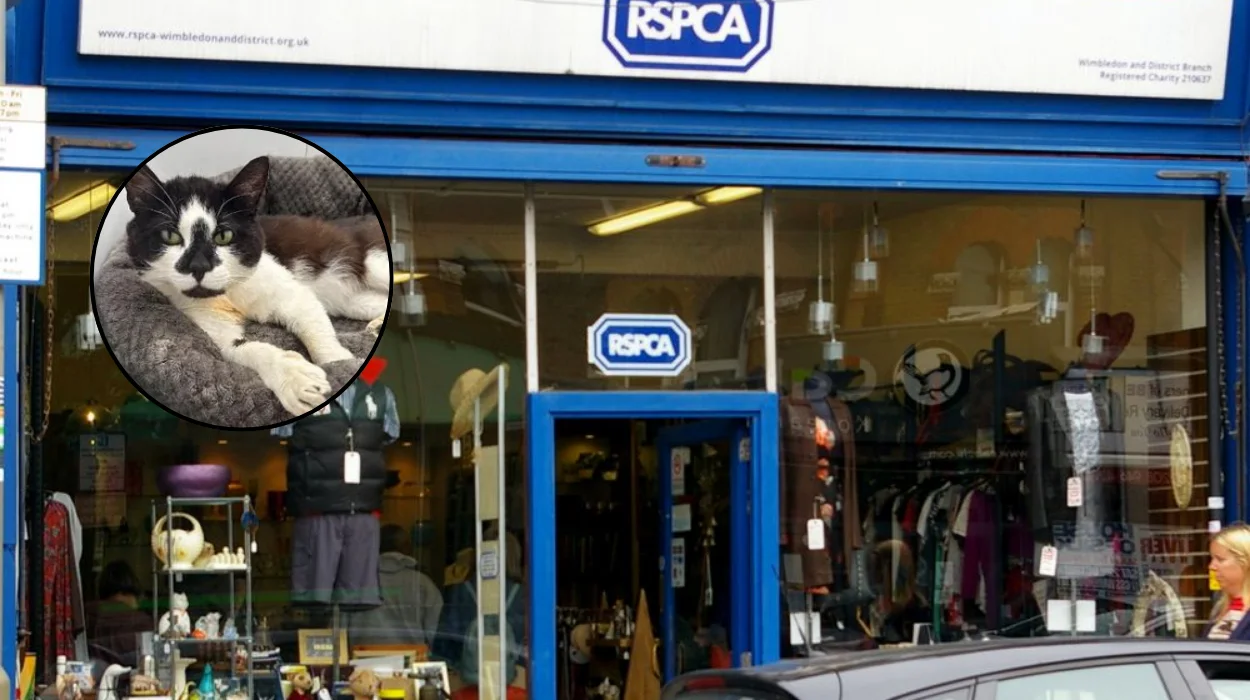Key Points
- RSPCA London centres are facing a record high of more than 1,700 cats in care, more than doubling since 2020.
- Average wait time for cats to be rehomed has increased by 23% to 40 days.
- The rise in cat intake is linked to recent large-scale cruelty and neglect cases.
- RSPCA East London and Havering Branch currently cares for cats Billy and Simba, both needing special care.
- Simba, about 11 years old, suffered stress-related health issues but is now recovering and ready for adoption.
- Billy, around 4 years old, is an affectionate FIV positive cat requiring an experienced owner.
- The RSPCA is urging the public to adopt through its Adoptober campaign and offers resources like the pet cost calculator.
- Adoption aims to reduce stress for cats kept in private catteries due to overcrowded centres.
- The charity emphasises personality matching over appearance and cautions against fuelling commercial breeding.
What is causing the rise in cats in RSPCA care?
As reported by Alice Potter, RSPCA cat welfare specialist, during the charity’s Adoptober campaign, the number of cats in RSPCA care has surged to unprecedented levels. According to Potter,
- Key Points
- What is causing the rise in cats in RSPCA care?
- How long are cats waiting to be rehomed?
- Who are Billy and Simba, and what makes their cases special?
- What is the RSPCA urging potential adopters to consider?
- What support and advice does the RSPCA provide for new pet owners?
- Why is the Adoptober rehoming campaign significant?
- How can people adopt Billy, Simba, or other cats from RSPCA?
- What does this situation reveal about animal welfare trends?
“We have an astonishing number of cats in our care who are looking for a new home. Many have come from recent large-scale cruelty and neglect cases.”
This rise has led to more than 1,700 cats being cared for at the charity’s fourteen national centres alone, more than double the figure of approximately 800 cats in 2020.
The RSPCA faces a rehoming crisis, with centres at capacity, causing the charity to rely on placing incoming cats into private catteries until space becomes available in their own centres. This situation creates additional stress for the cats. Potter notes,
“Life in a cattery can be stressful for cats so by finding them loving homes as quickly as possible we can also free up space for other cats who need our help.”
How long are cats waiting to be rehomed?
New RSPCA data revealed during Adoptober shows the average time cats spend waiting for a new home has risen sharply. In September 2024, the wait increased by 23% compared to the previous year—from 32.5 days to an average of 40 days.
Who are Billy and Simba, and what makes their cases special?
At RSPCA East London and Havering Branch CIO, two cats have been highlighted as part of the charity’s ongoing appeal.
Simba, approximately eleven years old, endured a tough ordeal. As reported by local sources, Simba’s previous owner loved him but could not remedy his severe stress-related skin conditions that led to self-harming behaviour. Since arriving in April, Simba has made significant progress under foster care, overcoming an ‘over-grooming’ habit. Potter shared,
“This sensitive soul is now ready to find his forever home where he can thrive.”
Simba is affectionate and craves company, making him a potentially life-changing companion. The branch will provide his new owner with a three-month supply of medication and guidance on managing his care, including his use of a cone collar.
Billy, around four years old, was rescued as a stray suffering from pain. The East London and Havering branch has nurtured him into an affectionate cat but underlines that he requires an experienced owner. Billy is FIV positive and a calicivirus carrier, meaning he must be kept indoors and cared for more attentively. Despite these challenges, Potter emphasises, “Billy deserves a loving home.”
What is the RSPCA urging potential adopters to consider?
Potter explained the charity’s approach to matching cats with adopters:
“There’s a cat for everyone: cute kittens, marvellous moggies, fireside felines and outdoor adventurers, we’ve got every kind of cat waiting for another chance at happiness.”
The RSPCA encourages prospective owners to prioritise personality compatibility over attributes like appearance, breed, or colour. Potter added,
“We always encourage prospective pet owners to look beyond appearance, breed and colour and instead look for a personality that matches you and your lifestyle.”
Furthermore, the RSPCA has a supply of purebred and pedigree cats entering its care, offering those with specific preferences an opportunity that does not support problematic commercial breeding operations.
For interested adopters, the charity recommends completing a ‘perfect match’ form with local RSPCA centres or branches to be notified when a suitable cat arrives.
What support and advice does the RSPCA provide for new pet owners?
Getting a pet brings joy but entails financial and lifestyle responsibilities. The RSPCA offers a pet cost calculator on their website to help potential adopters understand the associated expenses. They also recommend considering pet insurance to prepare for unexpected veterinary costs.
Why is the Adoptober rehoming campaign significant?
Adoptober is a key annual rehoming campaign run by the RSPCA to increase awareness and adoption rates during autumn when demand normally dips. This year, amid record-high cat numbers in care and longer wait times, the campaign is more vital than ever.
Potter stressed the importance of this initiative:
“This month’s Adoptober rehoming campaign is encouraging more people to consider adopting one of the lonely cats featured on our Findapet website who are looking for a forever home.”
Adoptober hopes to address the backlog of cats waiting for homes and alleviate pressure on overcrowded centres.
How can people adopt Billy, Simba, or other cats from RSPCA?
Individuals interested in Billy or Simba, or other cats needing homes, can view their profiles and apply online through the RSPCA’s Findapet website. This platform allows easy browsing and application for adoption candidates featured by local branches.
What does this situation reveal about animal welfare trends?
The dramatic increase in the number of cats needing rescue care at the RSPCA highlights ongoing challenges in animal welfare across London and the UK. Cases stemming from cruelty and neglect underline the continued need for public vigilance and support for charities like the RSPCA.
The charity’s data and Potter’s statements frame a growing rehoming crisis that demands community involvement in rescue, fostering, and adoption.



